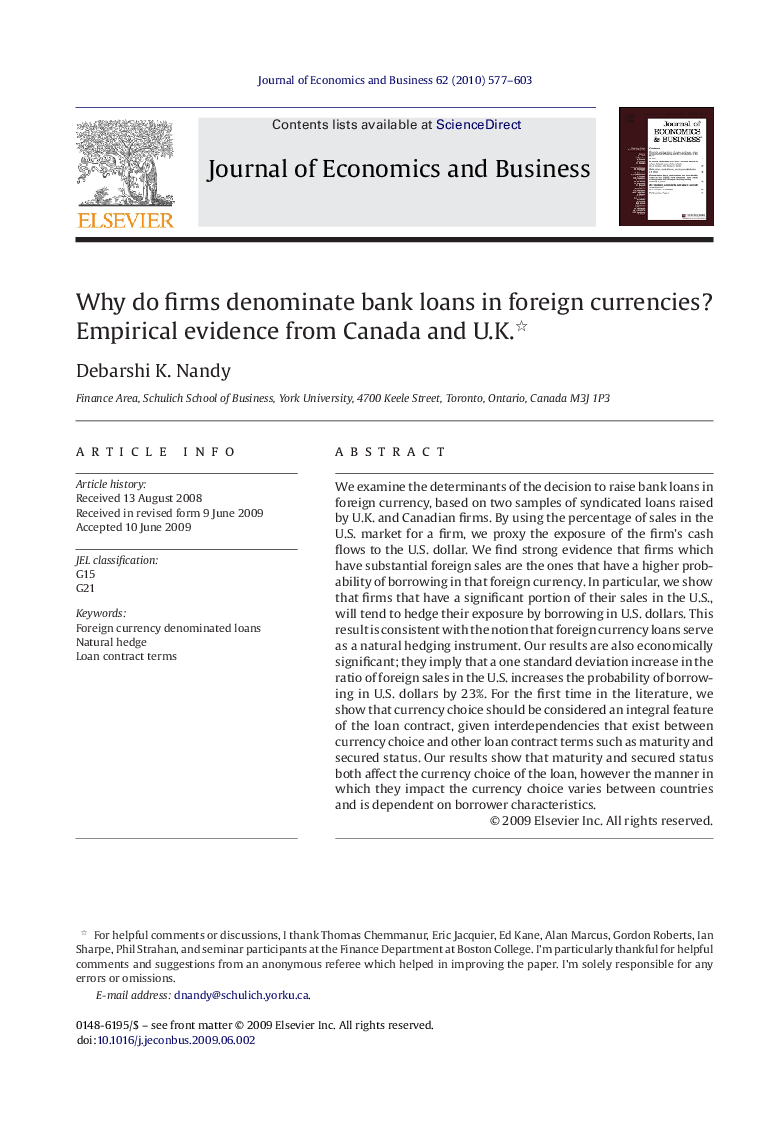| Article ID | Journal | Published Year | Pages | File Type |
|---|---|---|---|---|
| 958001 | Journal of Economics and Business | 2010 | 27 Pages |
We examine the determinants of the decision to raise bank loans in foreign currency, based on two samples of syndicated loans raised by U.K. and Canadian firms. By using the percentage of sales in the U.S. market for a firm, we proxy the exposure of the firm’s cash flows to the U.S. dollar. We find strong evidence that firms which have substantial foreign sales are the ones that have a higher probability of borrowing in that foreign currency. In particular, we show that firms that have a significant portion of their sales in the U.S., will tend to hedge their exposure by borrowing in U.S. dollars. This result is consistent with the notion that foreign currency loans serve as a natural hedging instrument. Our results are also economically significant; they imply that a one standard deviation increase in the ratio of foreign sales in the U.S. increases the probability of borrowing in U.S. dollars by 23%. For the first time in the literature, we show that currency choice should be considered an integral feature of the loan contract, given interdependencies that exist between currency choice and other loan contract terms such as maturity and secured status. Our results show that maturity and secured status both affect the currency choice of the loan, however the manner in which they impact the currency choice varies between countries and is dependent on borrower characteristics.
